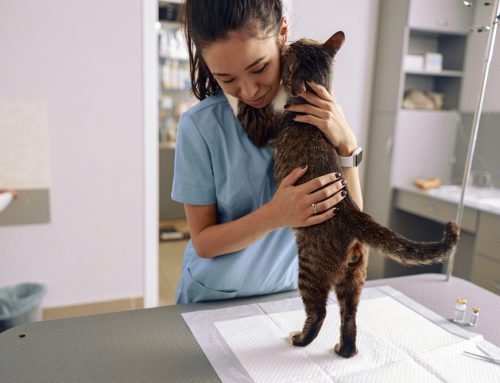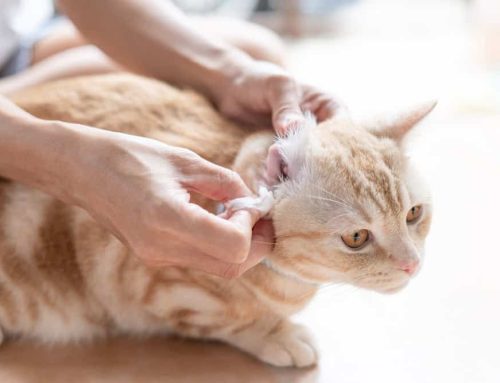Heartworm disease is a potentially life-threatening condition caused by Dirofilaria immitis, a parasitic worm, that affects dogs, cats, and other mammals. Helping you understand the facts about heartworm disease is what our Kauai Veterinary Clinic team aims to do.
What is heartworm disease in cats and dogs?
Heartworm disease is primarily transmitted through the bite of an infected mosquito. Mosquitoes pick up heartworm larvae by ingesting blood from infected wildlife and pets. The cycle continues as the infected mosquito bites other animals and transmits the larvae, and on and on. When a mosquito carrying heartworm larvae bites a pet, it transfers them into the bloodstream. Over time, these larvae mature into adult worms, primarily residing in the heart, lungs, and nearby blood vessels, and causing significant damage.
How do I know if my pet has heartworm disease?
Heartworm disease signs are subtle and vary depending on the severity of the infection.
In the early stages, your pet may show minimal or no effects. However, as the disease progresses, you may notice these signs:
- Persistent cough
- Fatigue and weakness
- Reduced appetite
- Weight loss
- Vomiting
- Bulging chest
- Difficulty breathing
- Swollen abdomen
- Collapse
If left untreated, heartworm disease can lead to severe complications, including heart failure and organ damage, and eventually result in death.
How is my pet tested and diagnosed with heartworm disease?
Diagnosing heartworm disease involves a combination of physical examination, blood tests, and imaging techniques such as X-rays and ultrasounds to see the heartworms in the heart and lungs. Our Kauai Veterinary Clinic veterinarian may also conduct antigen tests to detect the presence of adult female heartworms and microfilaria tests to identify larval stages in the bloodstream.
How can heartworm disease be treated in my pet?
We understand that heartworm disease can be a scary diagnosis. However, it can be treated in dogs using multiple tactics, including medications to kill adult worms, supportive care to manage side effects, and sometimes surgical extraction of heartworms. Heartworm disease can be challenging, especially in advanced cases, which is why prevention is a better option than the costly and arduous treatment.
There is no approved treatment for heartworm disease in cats, and prevention is the only way to protect your feline friend.
How can I keep my pet safe from heartworm disease?
Preventing heartworm disease involves veterinary guidance and at-home practices. Several measures can help protect pets from heartworms, including:
- Monthly preventive medications — Administering monthly heartworm preventive medications as prescribed is the most effective way to safeguard pets from heartworm infection. Heartworm preventives come in chewable tablets, which most pets enjoy because they are flavored and tasty.
- Wellness appointments — Regular veterinary visits allow for early detection of heartworm infection and prompt initiation of preventive measures. During your pet’s examination, our veterinary team will recommend heartworm screening and options for parasite prevention to safeguard against heartworms, fleas, ticks, and intestinal worms.
- Annual heartworm testing — Heartworm testing is essential, even for pets on preventive medication, to ensure early detection of potential infections. Even if your pet isn’t due for their annual wellness exam, ensure they are screened at least once a year. You should also schedule a screening if you accidentally skipped one month of their heartworm preventive.
- At-home mosquito control — You can minimize your pet’s mosquito exposure by taking such steps as using mosquito repellents, keeping pets indoors during peak mosquito activity, and eliminating standing water around your home. Remember that citronella and insect repellent chemicals can be toxic to pets, so keep your four-legged friend away while using them.
- Be cautious while traveling — Any time you visit a new region or state with your pet, discuss this with our team. Several areas have unique parasites and pathogens, and you want your pet to be protected from them. If you are camping or swimming, ensure you minimize your pet’s mosquito exposure by maintaining their parasite prevention program.
By making preventive measures a priority and staying vigilant for any signs of illness, you can significantly reduce your pet’s risk of heartworm disease and ensure they lead a long, healthy life. For personalized guidance on heartworm prevention, contact our Kauai Veterinary Clinic team.










Leave A Comment